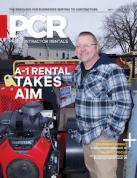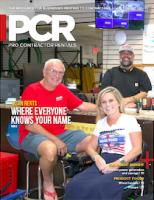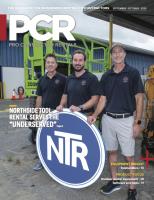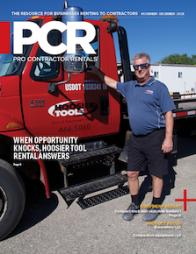Construction lighting solutions
LED is the future
By Steve Scattolini
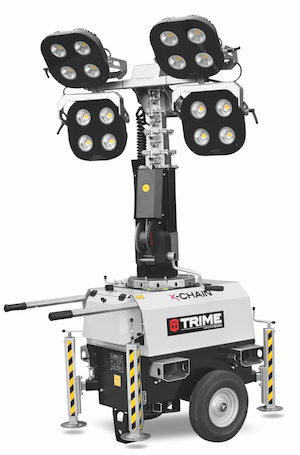 |
|
Well-built light towers mean fewer ongoing repairs, longer life and lower costs that can result in greater ROI. |
Most of us who grew up in the contractor and equipment rental business are very familiar with our old friend – the 4,000-watt metal-halide light tower.
This piece of equipment has served the industry well for many years. Unfortunately, the product has not seen any innovation – and in the past 10 years, it is one of the few pieces of construction equipment where the price has fallen. As of result of the downward price pressure, suppliers have been forced to take cost and quality out of the product.
The good news is there are emerging technologies that are the future of temporary job site lighting. LED light towers are looking to be a bright contender to become a leader in the lighting sector.
Up until a few years ago, LED light towers were not given much serious consideration because of the large price difference between a metal-halide vs. LED unit. Suppliers have found a way to bring down the cost of the LED towers while at the same time providing quality, innovation as well as a solution to many of the traditional problems that are associated with the metal-halide units.
LED advantages
Metal-halide towers that are used regularly can be expensive to maintain. Simple things like changing a bad bulb can create a service call that could result in a cost of several hundred dollars per call, considering parts, labor, service truck and overhead costs.
In fact, even a metal-halide unit that was checked out at the rental center may have a bad bulb by the time the unit is delivered to the renter. A meta-halide tower can go through as many as 12 bulbs per year plus ballasts. Add that to other general maintenance needs such as mast cables, wires and mast structure repairs and it’s clear that low-cost metal-halide light towers are no bargain.
Metal-halide bulbs also have a problem with light bulb efficiency. A good portion of the overall bulb efficiency erodes in the first several months of a bulb’s life.
Metal-halide bulbs also have restrike issues. They need several minutes of waiting before they can be lit again once they are shut down.
Metal-halide towers also consume more fuel because they require oversized alternators when compared with LED technology.
A great example of a highly efficient, well-built LED light tower is the EL1250 manufactured in Italy by Trime, Spa., a lighting specialty company. It features a heavy-duty galvanized steel canopy that has a powder-coated finish inside and out. The unit’s design allows rental centers to transport up to 20 units on a truck.
The tower has a vertical mast that can be raised or lowered with a manual or hydraulic system. The unit is built with 1,200 watts of high-power, high-efficiency LED lighting technology that far exceeds the light output of the traditional 4,000-watt metal halide tower.
The El250 is powered by a very economical two-cylinder Kubota diesel engine. An onboard Deep Sea Controller, with an eight-event, seven-day timer, can make the units capable of achieving run times of up to 300 hours on a single tank of fuel, depending on how many hours the lights are set to run. The EL1250 light tower can also run up to four auxiliary light-only towers off of one diesel-driven unit.
Unlike metal-halide bulbs, LEDs don’t have restrike issues. There is no waiting for a bulb to warm up – just turn on the breaker and they light instantly.
Because the LED light heads require very little power, it’s creating the opportunity for suppliers to develop hybrid towers that are part battery, part engine; battery-only towers and other innovative configurations. Additionally, the choice of light configuration and reduced glare has widespread appeal across the construction and entertainment
sectors.
Steve Scattolini is managing director at FTG Equipment Solutions, which distributes Trime light towers in the United States. www.ftgequipment.com
Copyright 2018 Direct Business Media. All rights reserved.




